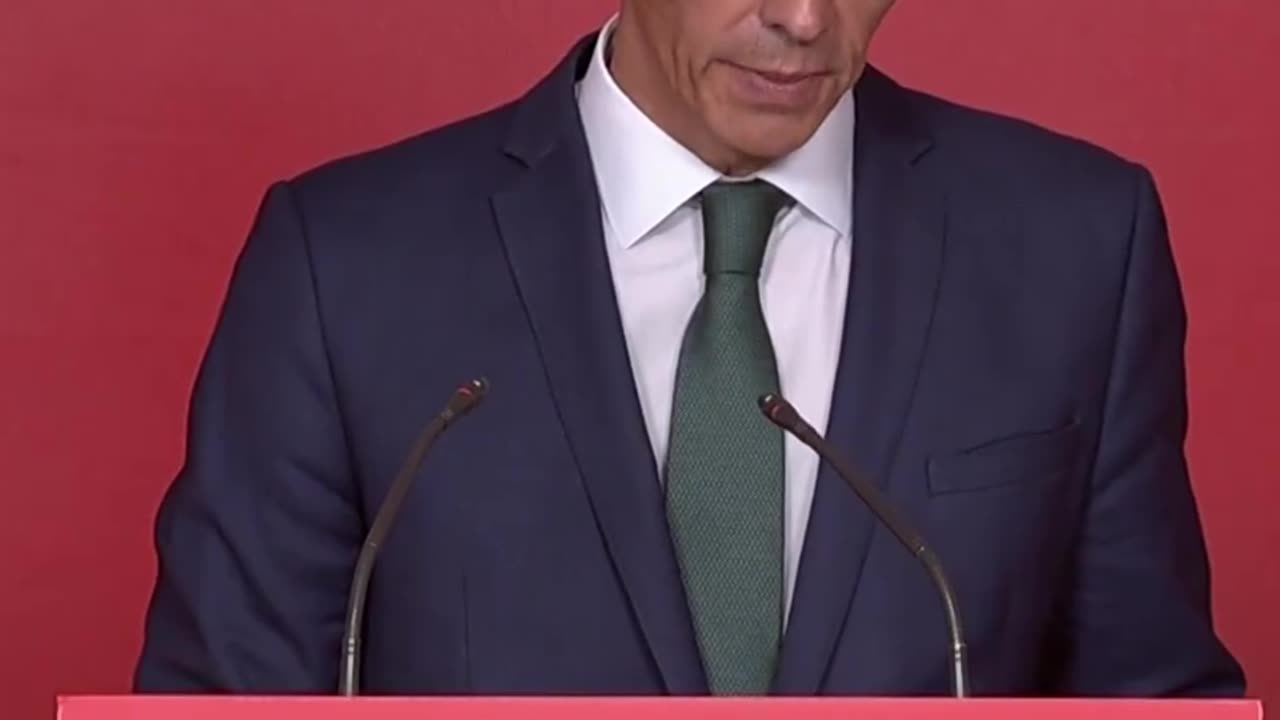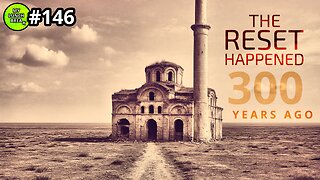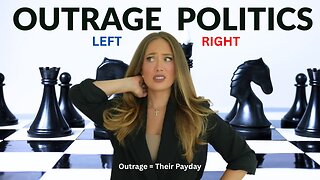Premium Only Content

Spain and the Arrogance of Power: Democracy or One-Party Rule?
In recent remarks that sparked controversy both inside and outside Spain, Prime Minister Pedro Sánchez stated:
“I have said it repeatedly. Elections are every four years, that has been the case, and it will continue to be so. We will not break the stability of a great country like Spain, which is experiencing one of its best moments in recent decades, to hand it over to the worst opposition that the democratic history of our country has ever had, in the hands of Mr. Feijóo and Mr. Abascal.”
At first glance, it may seem like a simple reaffirmation of Spain’s electoral calendar. But beneath the surface lies a deeply anti-democratic vision of power: Sánchez isn’t defending stability—he’s justifying his hold on power at all costs, discrediting his political opponents not based on policy—but on their very existence.
Stability or Fear of Losing Power?
Claiming that “Spain is experiencing one of its best moments” is, at best, denial. The country is facing economic slowdown, unresolved territorial tensions, high youth unemployment, and growing ideological polarization. Meanwhile, Sánchez governs with a fragile coalition propped up by separatist and far-left factions that have weakened national unity.
What stability is he referring to? Democratic stability does not mean shielding a government from criticism—it means accepting that power must alternate naturally when the people choose change.
The “Worst Opposition”... According to Whom?
Calling the democratic opposition “the worst in history” is not only arrogant—it’s dangerous. With that rhetoric, Sánchez attempts to delegitimize his rivals and portray them as threats to the nation, paving the way for institutional, judicial, or media control in the name of "protecting democracy."
Mr. Feijóo (People’s Party) and Mr. Abascal (VOX) are not extremists—they are elected leaders representing millions of Spaniards who are demanding order, sovereignty, and common sense. Sánchez’s refusal to debate their ideas and his use of insults instead only reveal a growing fear of being held accountable by a public that no longer believes in empty slogans.
The Sánchez Doctrine: Power Isn’t Shared—It’s Preserved
The message is clear: Sánchez doesn’t see democracy as a pluralistic system, but as a tool to remain in power. He may mention elections every four years, but avoids any possibility of early elections or public consultation when his leadership is weakened.
Saying “we will not hand over the country” sounds more like a monarch guarding his crown than a president serving his people. In a true democracy, no one “hands over” the country—the people choose through free and fair elections.
A Warning for America: This Is What Happens When the Left Settles Into Power
What’s happening in Spain should serve as a warning for the rest of the Western world. When the left clings to power, it becomes exactly what it once claimed to fight: authoritarian, elitist, and out of touch with the common citizen.
Pedro Sánchez has relied on the old narrative of “fascism” to smear his opponents. But the real threat to democracy doesn’t come from left vs. right—it comes from silencing dissent and controlling the political playing field.
Power Is Not a Right—It’s a Responsibility
The Spanish Prime Minister’s message reveals a troubling disregard for democratic alternation. Real democracy doesn’t fear the opposition—it respects it and confronts it with facts and leadership, not with insults and arrogance.
Instead of reaffirming his grip on power, Sánchez should explain why so many Spaniards are losing trust in his government. If he truly believes Spain is thriving, let him prove it—and more importantly, let him be willing to face the sovereign will of the people whenever they call for it.
-
 25:10
25:10
MYLUNCHBREAK CHANNEL PAGE
4 hours agoIstanbul Should NOT Exist - Pt 4
5.71K5 -
 LIVE
LIVE
tminnzy
3 hours agoDROPS ON - BO7 BETA ALL DAY! #BlackOps7
483 watching -
 1:35:48
1:35:48
Jeff Ahern
3 hours ago $8.46 earnedThe Saturday Show with Jeff Ahern
51.5K5 -
 LIVE
LIVE
GritsGG
4 hours agoWarzone Win Grinding! Most Wins in WORLD! 3680+!
135 watching -
 55:45
55:45
Tactical Advisor
4 hours agoNew Product Alert! | Vault Room Live Stream 040
38.4K4 -

Reidboyy
3 hours ago $0.64 earnedTHEY GOT RID OF SBMM WTF!?!? (Go Phillies)
10.1K -
 LIVE
LIVE
The Company Boyz
3 hours agoDying Light: The Beast | Ja Pierdole, Kurwa Bober!
69 watching -
![Mr & Mrs X - Feminism, Family, Federal Reserve, The Rise Of The [DS] Agenda](https://1a-1791.com/video/fwe2/12/s8/1/6/F/R/n/6FRnz.0kob-small-Mr-and-Mrs-X-Feminism-Famil.jpg) 58:10
58:10
X22 Report
11 hours agoMr & Mrs X - Feminism, Family, Federal Reserve, The Rise Of The [DS] Agenda
189K52 -
 16:37
16:37
Robbi On The Record
1 day ago $8.39 earnedThe Theater of Manufactured Outrage - When Left and Right Dance for the Same Puppet Master
44.3K49 -
 31:27
31:27
Stephen Gardner
22 hours ago🔥BOMBSHELL: Mortician EXPOSES Charlie Kirk Autopsy - The Key Evidence EVERYONE Missed!
136K300
